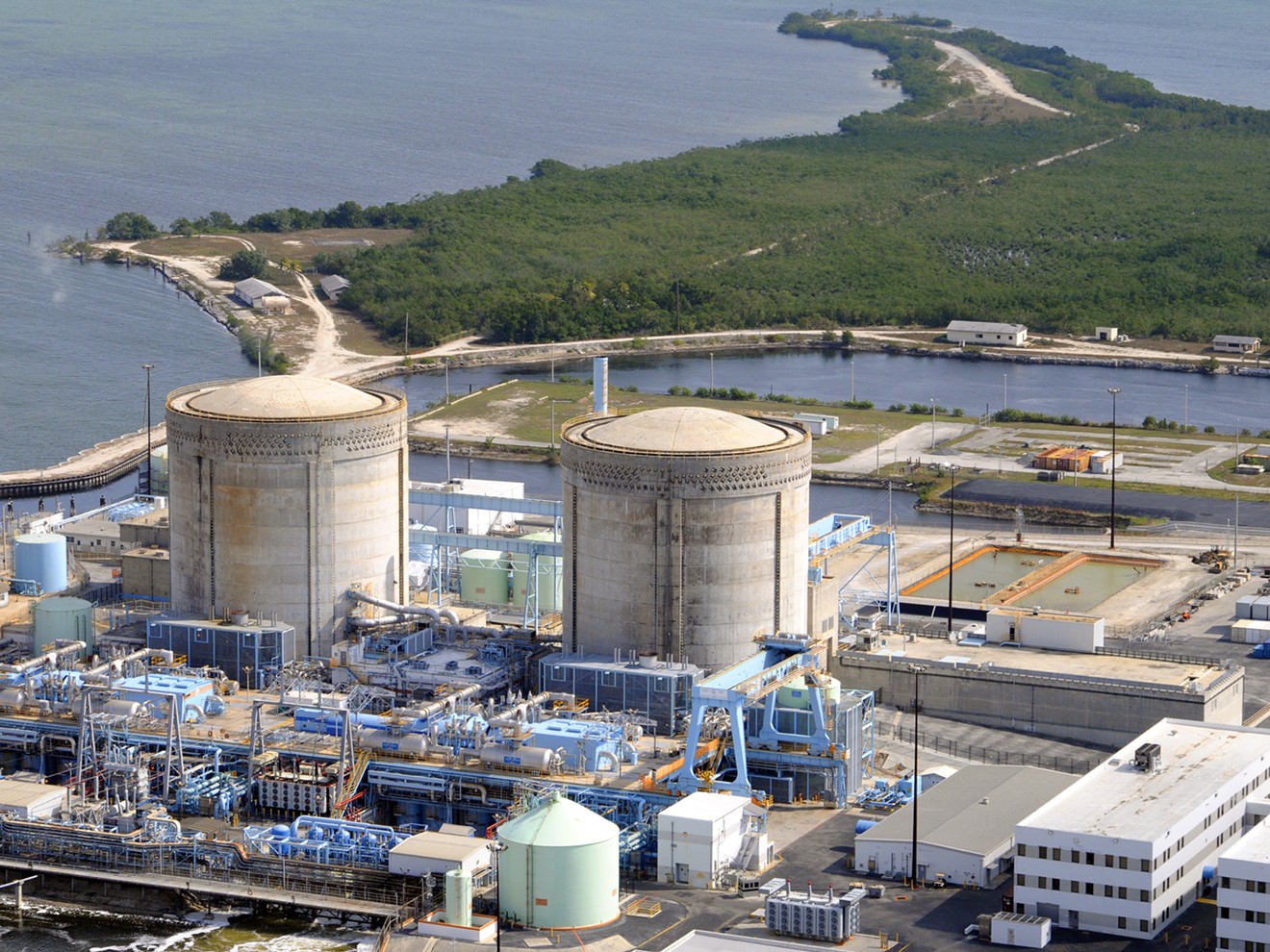But there's actually another ongoing legal fight that could still prevent FPL from storing the waste from two planned new reactors at Turkey Point in the Boulder Zone, an area 3,000 feet underground.
Two environmental groups, the Southern Alliance for Clean Energy (SACE) and the National Parks Conservation Association (NPCA), filed a legal complaint back in 2010, objecting to FPL's proposal. Multiple government studies have warned that waste injected into the Boulder Zone could leak upward into the Floridan and Biscayne Aquifers. FPL, however, contends the Boulder Zone is "sealed" and cannot leak into sources of water that humans use.
Despite FPL's repeated attempts to kill SACE's petition, the complaint still stands seven years later — and this coming May, SACE and the NPCA will finally get a legal hearing where FPL will be forced to reckon with environmentalists' concerns.
"Their experts are trying to say these contaminants will not migrate into the aquifer," Sara Barczak, SACE's director for high-risk energy sources, tells New Times. "Our experts are saying there has already been migration, and it's likely there will be more migration if the new reactors are built."
Roughly seven years ago, FPL first pitched the idea of a Turkey Point expansion to the U.S. Nuclear Regulatory Commission (NRC), the federal agency tasked with approving new nuclear-reactor construction sites. As part of that plan, FPL said it would store any new wastewater from the reactors, numbers six and seven, inside the Boulder Zone. SACE immediately interjected because environmentalists say the wastewater and radioactive material include carcinogens such as cesium, strontium 90, and tritium.
This year, the group Citizens Allied for Safe Energy (CASE) filed a complaint challenging FPL's radioactive-waste plan for Turkey Point. The NRC shot down that filing this month on procedural grounds, claiming CASE had simply filed its petition too late in FPL's application process.
But SACE and the NPCA filed on time, so their fight rages on.
"In 2010, we pulled together experts, got together with the National Parks Conservation Association on a number of contentions, including nuclear waste issues," Barczak says. "Over time, not all our contentions were accepted, but our petition essentially addresses the same concern that CASE raised. Ours does not focus specifically on radioactive
Wastewater, largely in the form of raw sewage, has been injected into the Boulder Zone since the 1960s. Environmentalists have long opposed the practice, claiming the waste could leak into Miami's drinking water supply. Radioactive waste dumping, which FPL is proposing, represents a new step in the anti-dumping fight. This month, Miami's Urban Paradise Guild started a Change.org petition to try to persuade lawmakers to make Boulder Zone dumping
Caroline McLaughlin, the NCPA's Biscayne program manager, said her group joined SACE to fight FPL because of the unique threat Turkey Point poses to national parks in South Florida.
"You couldn’t find a worse place to put a nuclear power plant," McLaughlin says. "It's at ground zero for sea-level rise." So, she says, the NCPA has long opposed expanding anything at Turkey Point.
The federal government has not yet given the groups a hard date for their hearing with FPL, but Barczak and McLaughlin hope that after the meeting, the NRC will force FPL to come up with a new waste-storage plan.
"The best possible outcome is that they’re going to have to go back and revise their Environmental Impact Statement to addresses the potential impacts of this," McLaughlin says. "We need a statement that guarantees there will not be significant impacts to the drinking water supply. We won’t accept anything less than that."
In the meantime, Barczak and SACE, which fights for clean energy in multiple states in the South, notes that the type of reactor FPL
But if they do, Barczak warns that the pressure for FPL to recoup its building costs could easily discourage the company from investing in more clean-energy initiatives such as solar and wind power.
As long as FPL says it wants to build new reactors, SACE and the NPCA say they're demanding the utility company figure out some other way to store its waste from Turkey Point.
"Their track record at the original facility is terrible, and they've threatened and impacted our national parks," Barczak says. "I don’t see them taking the high road to alleviate that situation, so why would we trust them to do the right thing with new reactors?"
Here are the latest documents from SACE and the NCPA's fight with FPL:












